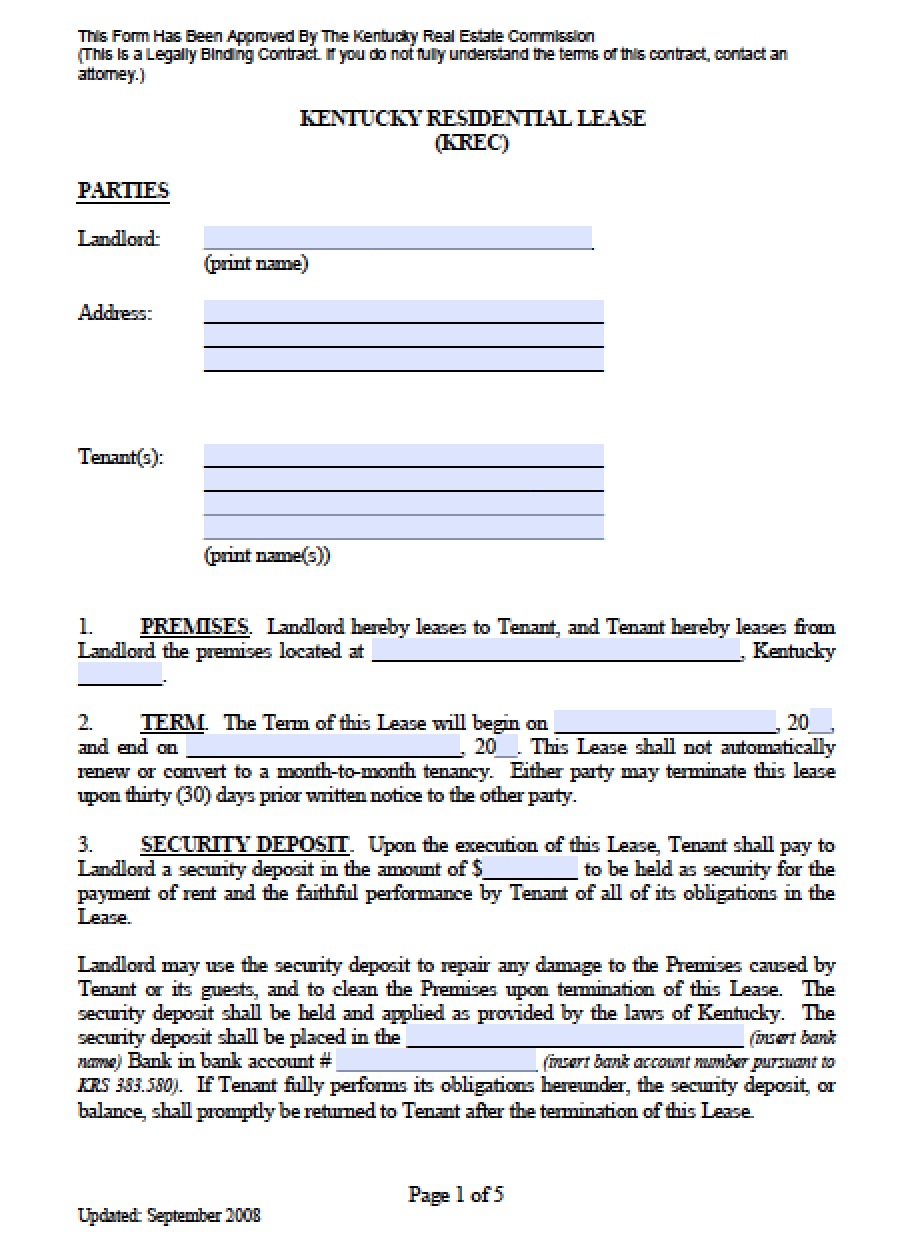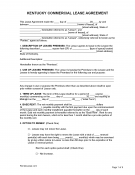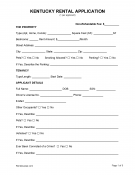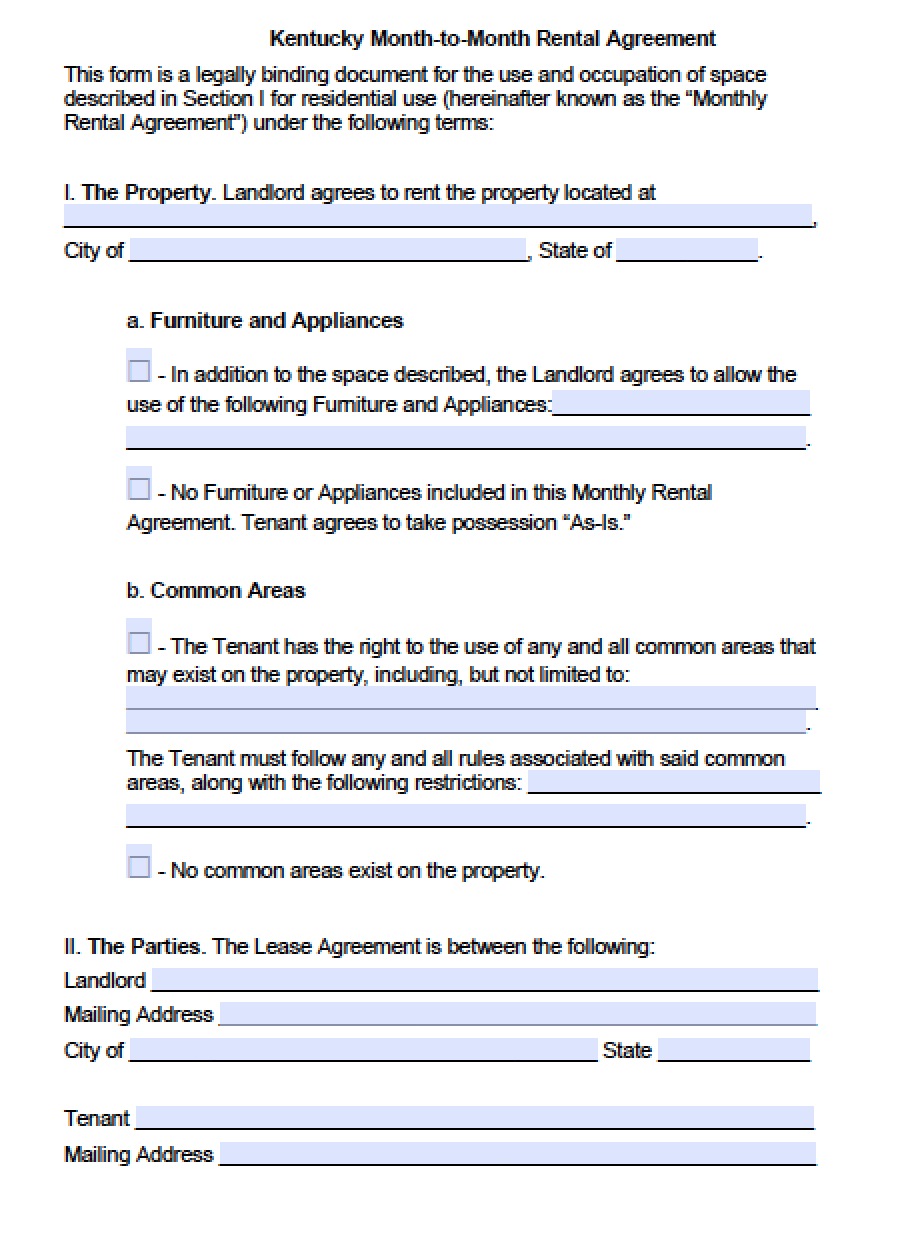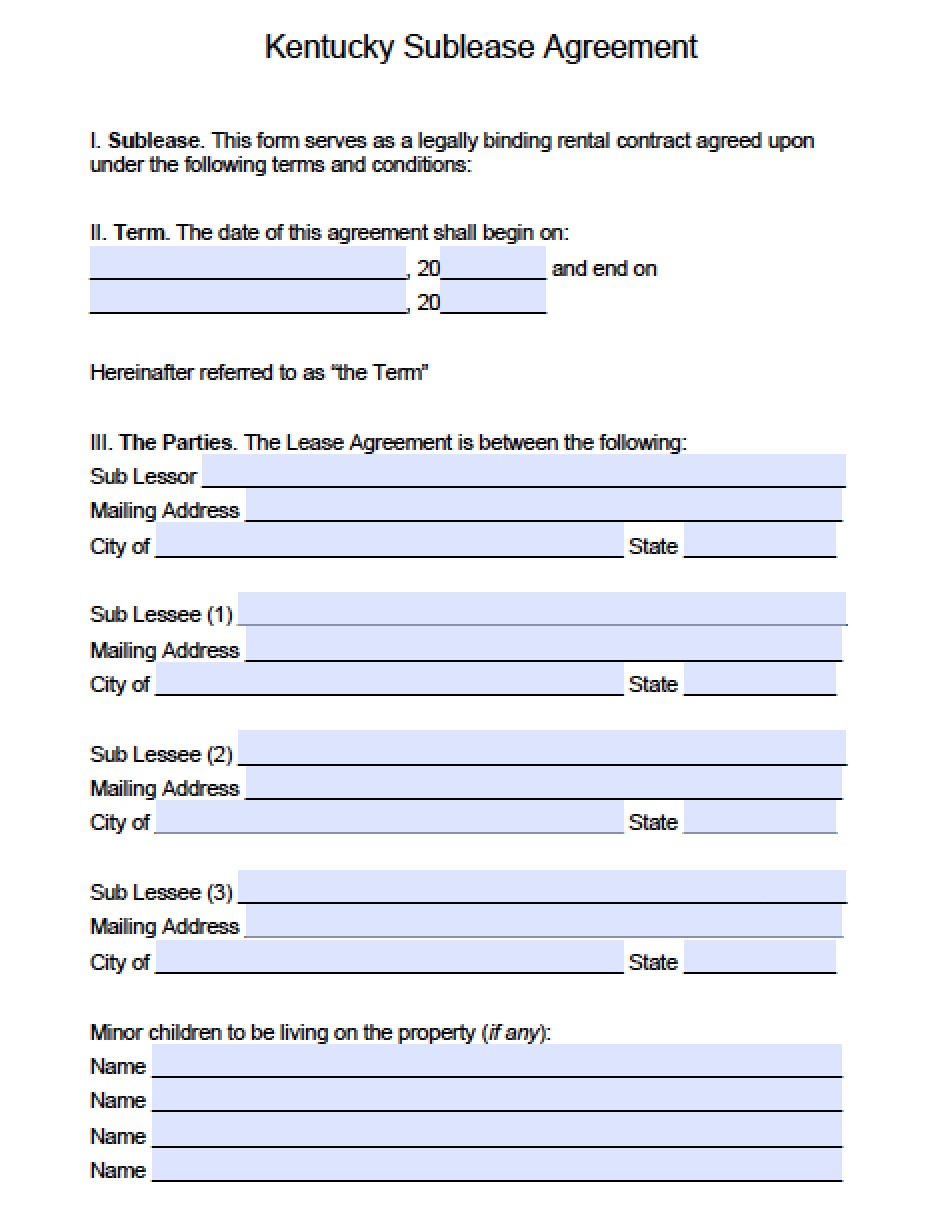Kentucky lease agreements are used to legally bind both a landlord and tenant into a rental arrangement for either residential or commercial space. Terms covered in the contract include the duration of the lease, the cost of rental payments, a list of prohibited activities, and an accounting of any furnishings and utilities included with the rental. The amount of time depends on the type of agreement chosen, but the most common type is the standard twelve (12) month residential lease agreement. All landlords are recommended to make use of the rental application to properly screen all the tenants ensuring they are financially capable of paying rent on a timely basis.
Kentucky Rental Lease Agreement Templates | PDF
Kentucky Lease Agreements
The Kentucky seven (7) day notice to quit is an official notice stating that a tenant who has fallen behind on rent must vacate the premises or face possible legal action should they fail to pay the balance owed. The tenant is given seven (7) days to come up with the funds or else they will have to move out. Nevertheless, if the tenant decides to leave the property, they are still obligated to pay the back-rent to the landlord. Note…
The Kentucky standard residential lease agreement focuses on a one (1) year term with monthly payments typically made on the first (1st) of every month. In order for the rental contract to go into effect, both the landlord and tenant must agree on terms and authorize the document with both their signatures. It is advised that the tenant complete a rental application before the landlord binds themselves into an agreement to ensure that the tenant’s financial and employment histories are satisfactory. Furthermore,…
A Kentucky commercial lease agreement is for landlords who wish to rent out their office, retail, or industrial property to a tenant. The contract may be modified to any of the following three (3) different types of commercial lease agreements: Gross – The landlord is required to pay all the expenses related to the property. Modified Gross – The landlord and tenant will agree on who pays what costs for the property; a shared arrangement. Triple Net (NNN) – Tenant…
The Kentucky rental application is used by landlords to investigate a tenant’s credit score and financial standing as well as check with any references regarding their employment and leasing history. The landlord may charge the tenant a fee for performing the lookup whether or not they are accepted onto the premises. When reviewing the individual’s credentials, it is important to note that the landlord may charge as much as desired for the security deposit in Kentucky. Therefore, if a tenant has…
The Kentucky month-to-month rental agreement is for landlords and tenants seeking an arrangement which does not have a specific end date. This document can likewise be used to accommodate tenants who are unable to commit to a long term agreement and landlords who only need to rent a space for a limited period. The landlord should remain cautious when accepting a new lessee and screen their tenants through a rental application. Rent Increase (§ 383.695(2))– The landlord has to give…
The Kentucky sublease agreement is a contract between a lease-holding tenant (the “sublessor”) and a new tenant (the “sublessee”) in which the sublessor agrees to rent out their rental unit to the sublessee. This type of agreement is often used when a tenant is traveling or moving out. Depending on their lease, the sublessor may have to seek the written permission of the landlord in order to legally accept rent from the sublessee. Furthermore, the sublessor will be subject to any…
DISCLOSURES
Identification (§ 383.585) – All landlords must identify all persons, management companies, or anyone else allowed to enter the premises in the rental agreement.
Lead-Based Paint – Federal law that requires all lessors of space built before 1978 to give this form to tenants in order to inform them about the existence of this hazardous paint.
Move-in Checklist (§ 383.580(2)) – All landlords must request a move-in checklist to be completed before accepting a security deposit.
SECURITY DEPOSITS
Security Deposit (§ 383.580(1)) – The landlord must inform the tenant of the place and account number of where the deposit is being held.
Maximum – There is no state limit on how much a landlord can charge tenants for security deposits.
Returning (§ 383.580(7)) – Unless the amount is disputed, the landlord has sixty (60) days to return the deposit. If this period passes and the sum is unclaimed, the landlord may keep it for themselves.
LANDLORD'S ACCESS/ENTRY
Notice (§ 383.615(3)) – The landlord must give at least two (2) days' notice before entering the premises for any alteration or repair.


